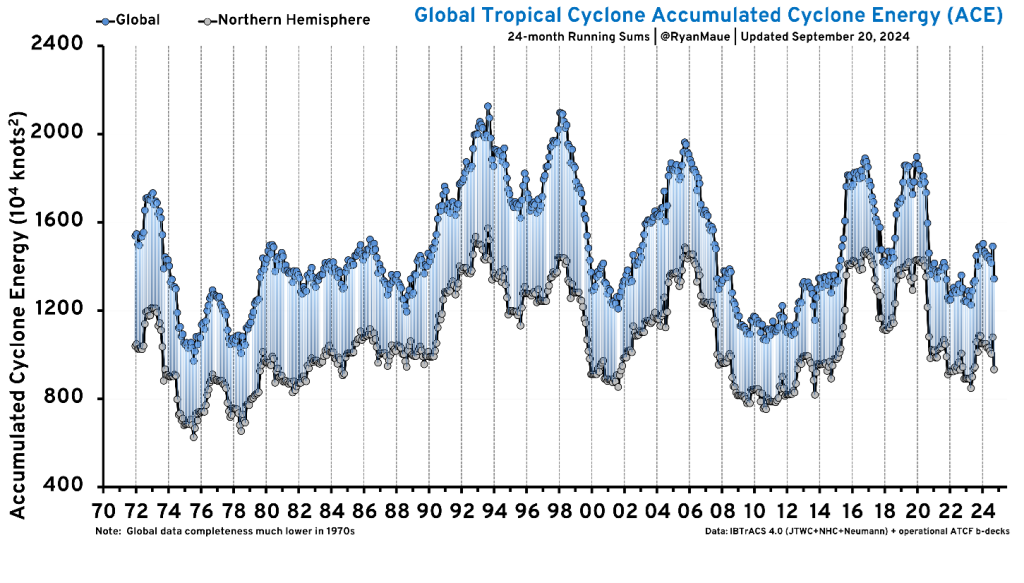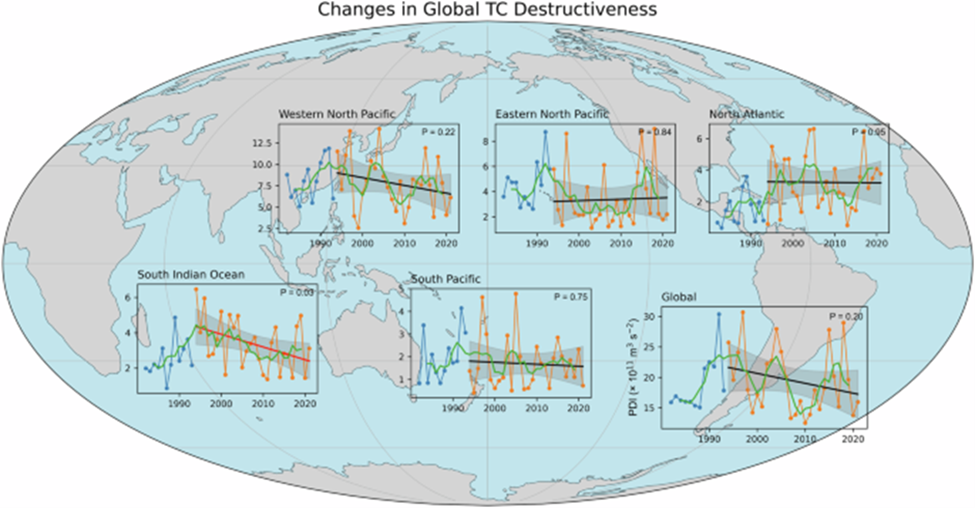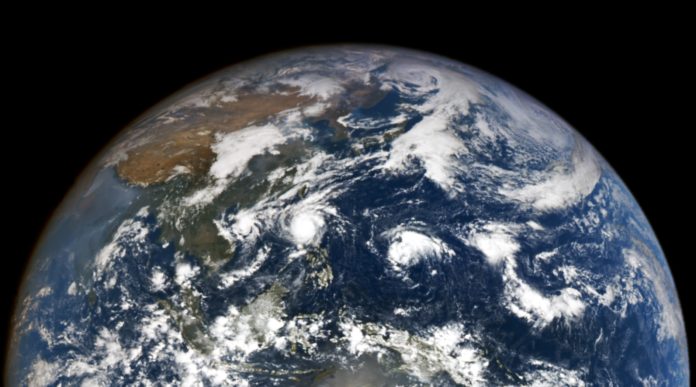Media outlets such as Carbon Brief and The Guardian recently ran articles claiming that climate change is making tropical cyclones worse shortly after cyclone Chido caused destruction and tragic loss of life in Mayotte and Mozambique this past December. This is false. Tropical cyclones are not worsening. Data show no increase in the severity or number of hurricanes and typhoons. In fact, recent research suggests that there has actually been a modest decrease in cyclone frequency and power over the past 30 years.
The Carbon Brief post, “Chido hits; Coal’s new peak; Africa’s energy transition,” citing the Associated Press, claimed that Chido was the “most intense storm to hit Mayotte in 90 years,” and that “[s]cientists have long suggested that climate change is making cyclones worse in the region, but a lack of weather data has hindered more conclusive claims.”
The Guardian’s coverage in the article “Hundreds feared dead as Cyclone Chido devastates French island of Mayotte,” rightly focused examined tragedy of the disaster that occurred there, but the paper could not help itself, claiming in the very last paragraph that tropical cyclones are “getting worse because of the climate emergency,” and “cause large humanitarian crises in poor countries in southern Africa, which contribute a tiny amount to global heating, underlining their call for more help from rich nations to deal with the impacts of climate change.”
The Guardian’s point that African nations need more help because of wealthier nations’ alleged larger contributions to “global heating” is silly, because one imagines that aid would be needed and requested by poor countries when natural disasters occur regardless of climate change. They require help because they are underdeveloped, and they are underdeveloped for a variety of reasons, among them poor institutions, limited property rights, and political corruption, none having to do with climate change.

Beyond that logical error, publicly available data show that tropical storms are not getting more frequent or extreme. Climate Realism has covered that fact many times looking at the historical tropical cyclone storm data compiled and provided by meteorologist Dr. Ryan Maue. The lack of trend is particularly evident when looking at global Accumulated Cyclone Energy (ACE) – a measure of storm windspeeds over time that gives a value for storm energy. (See graph above) Climate at a Glance: Hurricanes and Climate at a Glance: Global Tropical Cyclones also present real-world data showing no increase in the frequency and severity of such storms.
Emerging research discussed by Chris Morrison in a Daily Sceptic article also shows, contrary to the claims made by Carbon Brief and The Guardian, that cyclones have not been intensifying. Research recently published in the journal Nature that shows there has been “no increase in the destructive power of cyclones – the generic term for typhoons and hurricanes – in any ocean basin over the last 30 years.”
Morrison explains the researchers developed a “Power Dissipation Index,” (PDI) which is similar to ACE except that it includes the intensity of the storm as well as duration and frequency. That metric showed the South Indian basin, where Chido formed, has seen a decline in PDI over the past 30 years. This suggests that the modest warming of the past hundred-plus years has had limited if any impact on cyclone formation and severity. (See graphic below)

A number of factors besides water temperatures factor into whether cyclones form, how powerful they are, and their duration. This is part of the explanation for why there were more typhoons (hurricanes in the Asian Pacific region and Indian Ocean) in 2024 than there were in 2023, despite 2023 ocean temperatures having been much higher, as Climate Realism discussed in the post “Global Warming is Not Making Record Typhoons, South China Morning Post.”
Multiple lines of evidence indicate that tropical cyclones are not getting worse due to the modest warming of the past hundred plus years, regardless of the reason for the warming. Carbon Brief and The Guardian misinform and do their readers a disservice when they leap to attribute individual storms to climate change, especially when evidence to the contrary is so readily available to the public and journalists.




















All this is total nonsensical as carbon dioxide only is 0.O4% of the atmosphere and to say that that is causing cyclones 🌀 to be more severe is ludicrous! All of these weather related events are a result of high and low pressures in the atmosphere as anyone knows and the conditions are constantly changing and obviously cannot be predicted until they develop! I seriously doubt that the minimal amount of carbon in the atmosphere over ocean waters is making them stronger or weaker! Nice try Guardian and Carbon Brief but you are obviously not informed enough to make these erroneous claims!